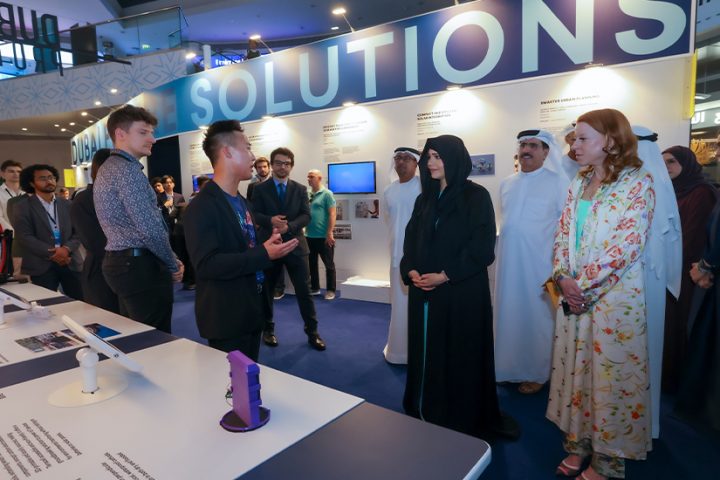Implementation of digital technologies without a clear intent to transform the business capabilities, will result in underwhelming and short-lived impacts.
Digital technologies hold a great potential to enable and accelerate our transition to net zero, ample research and empirical evidence show. A recent report published by the Royal Society highlights how one-third of the reductions in carbon emissions required by 2030 could be achieved by digital technology deployment, citing the benefits of smart meters, supercomputers, weather models, and artificial intelligence, amongst other innovations.
Technology alone will not achieve transition to low-carbon economy, technology–led business transformation, driven by purpose, can Deployment of digital technologies achieves footprint reduction only indirectly
However, technology alone will not achieve the transition to a low-carbon economy. Technology–led business transformation, driven by purpose, can.
What transformation? Implementation of digital technologies without a clear intent and coordinated guidance to sustainably transform the business capabilities, will result in underwhelming and short-lived impacts.
Often, the deployment of digital technologies achieves footprint reduction only indirectly – as a by-product of other objectives asset or resources utilisation efficiencies, doing more, better, with less. There is a clear need to explicitly include net-zero contribution among the priority objectives for these programmes – and relentlessly measure and adjust towards them.
There is a clear need to explicitly include net-zero contribution among the priority objectives for these programmes
The mission for companies then is two-fold: defining transformation blueprints for sustainable change on business capabilities; translating these into plans with measurable targets to achieve net-zero goals.
At the same time, to enable systemic change, beyond single organisation, sector, regulators will have to do their bit.
The mission for regulators is then to provide the enabling policies, frameworks – especially in terms of data infrastructures, data exchange and data accessibility policies for net-zero reliable data, across sectors, integrating multiple sources. Many ongoing initiatives in that space, but still opportunities, ground to cover.
In the energy and utility industry, data-led platforms empowering companies to identify ways to minimise environmental impact and costs, are already available today; digital twins are operational in various parts of the world; predictive technologies and IT,OT integration are being already exploited. Companies that act now to integrate these technologies will be the ones that drive long-term value through to 2050 and beyond.
TAQA, one of the largest utilities companies in the region, is leading the way, and announced its 2030 sustainable and profitable growth strategy. The holistic approach to transformation which the company has adopted is an effective way to drive change, and the foundation to becoming an even more effective data driven organisation: it involves digital innovation alongside a change in mindsets, business processes, culture.
This foundation will allow TAQA to fully exploit the innovations and the digital technologies deployed within the physical infrastructure. Bringing these programmes together, within the dual purpose of a more efficient and more sustainable business, will be a great testament to how the country is committing to the net-zero agenda.
ESG principles and practices are now commonplace, and we want to see digital transformation as a core contributor in this area. Digital transformation efforts should explicitly incorporate net-zero, carbon reduction targets among the objectives their VROs would measure.
A world and businesses that are fit for the future, invest today in meaningful innovation in this space and integrate net-zero commitments into the strategic decision making, transformation planning and execution, to achieve the ambitious goals of the 2030 Agenda.



















